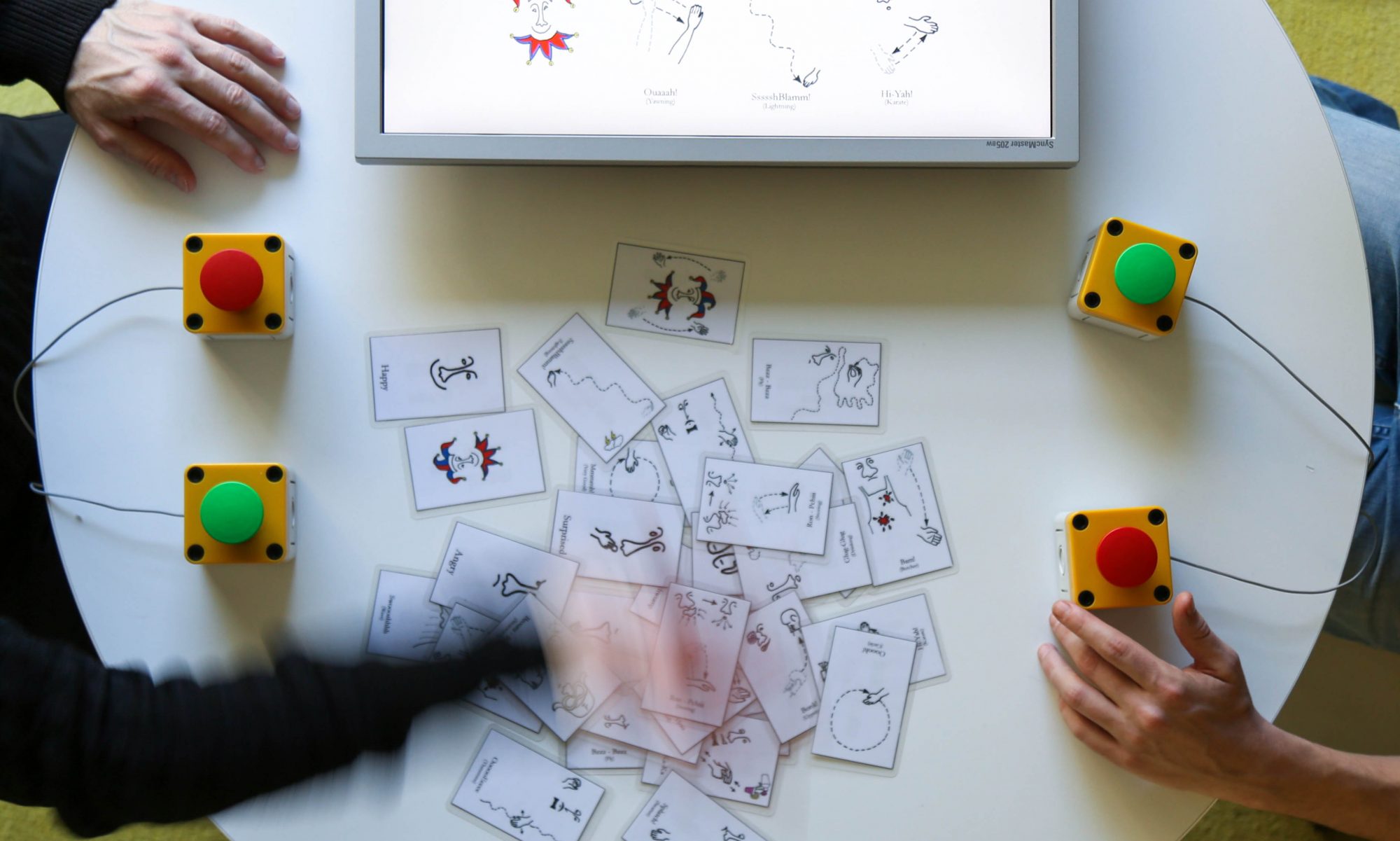Designing Gestures for Interactive Systems:
Towards Multicultural Perspectives
Workshop of the International Conference on Human-Computer Interaction
INTERACT 2017 , September 25-29, 2017, Mumbai, India.
The workshop will be held on Monday September 25 2017
Context and General Objectives
We address in this workshop the problem of designing gestures in interactive systems. Current multi-touch and motion sensing technologies allow for capturing a large scope of gestures and movements that can be used to interact expressively with different media. Yet, the common use of gestures remains limited to few well-known strokes such as wipes and pinches. The use of hand or body movements is even more rare, with the exception in some video-game systems using the Wii or the Kinect.
Several issues can be invoked to explain the difficulties to include rich gestural input in interactive systems. First, the choice of possible gestures is generally imposed by manufacturers that focus on easiness of use (and even patent them). Only few systems let users to propose their own vocabularies with rich expressive content. Second, we argue that shared methodologies for designing and sharing gestures are generally lacking in the engineering fields.
Our aim is precisely to explore the question of gesture and movement design in a participatory workshop. In particular, we wish to focus the discussion on possible differences in cultures and contexts, and how this might affect both positively or adversely the appropriation of shared gestural interaction paradigms.
Workshop Program
General goal
To explore “gesture design”: how can we create, learn and share a set of gestures, movements, using objects and technological tools, …or maybe no technology at all. This is a practice-based workshop where we would like to put the priority to experimentation. We will provide tools such as como.ircam.fr, that could be used to sense and recognize body movement using mobiles (we’ll bring ipods to everyone)
We believe this will trigger a general discussion on key issues such as interaction design, technology, post-colonial context, cultural exchanges and gender.
Schedule:
8h30-9h
Recall of workshop schedule and goals, fast roundtable of participants (1 min max per participant)
9h-9h45h
Short presentations of methods and tools
Review of current motion sensing systems: A. Kaur et al, B.Sharma (5 min each)
Demonstrations of sensing systems: J.F.Jego (10 min)
Demo of como.ircam.fr: F.Bevilacqua & J.Larralde (10 min)
9h45 -11h
Forming small groups (typically 2-4 persons),
Ideation phase, starting experimenting to get familiar with the methods and technology (with the help of the Workshop organisers)
Tea
11h 30-12h 50
Practice work in small groups towards a proposed concept and context
Before lunch: each group present in 5 minutes the current concepts/methods to the whole group
Lunch
14h -15h20
Practice work in small groups
Tea
15h50-17h10
Presentation of the work among participants and general discussion.
We wish that each group could demonstrate either a concept, a mind mapping, a direct use of technology (e.g. CoMo) and its critique, to small choreography or performance !
Target Audience and submission procedure
The workshop is open to participants of diverse backgrounds, including engineering, human and social sciences, design and the performing arts. We will particularly encourage diversity in culture and gender balance. We strongly encourage female applications.
To participate to the workshop, please submit either
- an extended abstract (4 page max) with supporting material (e.g. videos)
describing a method/tool for gesture design, to be tested during the workshop - or a short email describing your motivation and/or background
Please send the abstract and video links to: workshop.gesturedesign@gmail.com
Expected Outcomes
The outcome of the collective experiments will be documented by video recording and collecting material such as sketching. The different artefacts produced will be made available on a website (http://gesturedesign.ircam.fr) and could be shown during the whole conference (with the consent of the participants). We ambition that this workshop should stimulate new methods useful for the participants. The gather material could serve as the basis for subsequent collective publications. Moreover, we wish that this workshop could initiate a series of international events and multicultural collaborations on this topic, in particular with India.
Dates
- June 21 2017: Submission deadline for participants (workshop.gesturedesign@gmail.com)
- extended abstract on Gesture Design method and tools, supported by video materials (and/or software)
- or a short email describing your motivation and/or background (
- if you cannot meet this deadline but wish to participate, please send us an email
- Jun 25, 2017: Notifications to workshop participants of acceptance
- July 1st: End of early bird registration
- July 31, 2017: Revised version of extended abstract and material to be posted on the website
Organisers
- Frédéric Bevilacqua and Joseph Larralde are researchers on the development of gesture-based interactive systems and movement-sound interaction.
- Anne Dubos is an anthropologist and a transmedia artist, with expertise on the gesture transmission in contemporary theater in Kerala (South India).
- Joël Chevrier is a physics professor currently developing new methodologies to introduce science and technology to broad audiences.
- Jean-François Jégo is an artist-researcher, expert on virtual reality & augmented reality.
Contact
For questions and further information please send email to:
frederic dot bevilacqua at ircam dot fr
Acknowledgements
We acknowledge support from the Rapid-Mix project (H2020-ICT-2014-1 grant agreement No 644862), funded by the European Union’s Horizon 2020 research and innovation programme.
References
- F. Bevilacqua, et al., Continuous realtime gesture following and recognition, Lecture Notes in Computer Science (LNCS), Vol. 5934, 73–84, Springer-Verlag, 2010
- http://rapidmix.goldsmithsdigital.com/rapid-api/ (retrieved on 31 Jan. 17)
